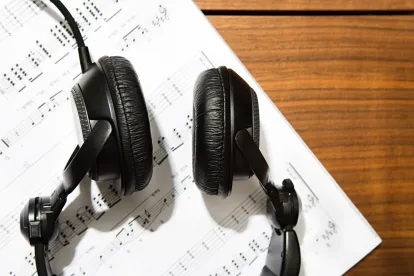The US Court of Appeals for the Ninth Circuit affirmed in part and reversed in part a district court’s judgment after a jury trial, ruling that the song “Blurred Lines” infringed Marvin Gaye’s 1970s song “Got To Give It Up.” Pharrell Williams, et al. v. Frankie Christian Gaye, et al., Case No. 15-56880 (9th Cir., Mar. 21, 2018) (Smith, J) (Nguyen, J, dissenting).
In 2012, Pharrell Williams and Robin Thicke wrote and recorded “Blurred Lines.” After hearing the song, Marvin Gaye’s family members, who had inherited the copyrights to Marvin’s musical compositions, made an infringement demand on Williams and Thicke. Negotiations failed, and Williams and Thicke, along with Clifford Harris, Jr., who separately wrote and recorded a rap verse for “Blurred Lines,” filed for a declaratory judgment of non-infringement. The Gayes counterclaimed alleging copyright infringement. The Gayes added UMG Recordings, Inc., its subsidiaries, and other publishing companies and record labels as third-party defendants, asserting that they were liable for their manufacture and distribution of the song. After the trial court denied Williams and Thicke’s motion for summary judgment, the case went to trial.
The jury found that Williams and Thicke infringed the Gayes’ copyright, but found Harris, the record labels and publishers not liable for infringement. The jury awarded the Gayes $7.3 million in actual damages and infringer’s profits. After the trial, the district court denied Williams and Thicke’s motion for judgment as a matter of law and for a new trial. The district court overturned the part of the jury verdict finding that Harris and the record labels should not be liable for infringement and reduced the award to $5.3 million while adding royalties of 50 percent for future revenues received by Williams, Thicke and Harris. All parties appealed.
The Ninth Circuit addressed five issues on appeal. First, the Court rejected Williams and Thicke’s challenge to the district court’s denial of their motion for summary judgment. The Court stated that according to the 2011 Supreme Court of the United States case Ortiz v. Jordan, a party may not appeal an order denying summary judgment after a full trial on the merits. Second, the Court upheld the district court’s damages award, finding that the royalty rate of 50 percent was not unduly speculative because it was based on the testimony of an expert with deep industry knowledge. Third, the court rejected the Gayes’ challenge to the district court’s denial of attorneys’ fees, finding that the district court properly analyzed the discretionary factors as defined by the Supreme Court in its 2016 decision in Kirtsaeng v. John Wiley & Sons, Inc. (IP Update, Vol. 19, No. 7).
Fourth, in addressing Williams and Thicke’s challenge of the district court’s denial of their motion for a new trial, the Ninth Circuit found none of their arguments persuasive. Williams argued that the jury instructions regarding extrinsic similarity in terms of comparing the accused and copyrighted works were erroneous. The Court detected no defect, noting that the instructions on the whole made it clear that the jury could consider only elements in the sheet music deposit copy and that copying does not require deliberate or intentional copying. Rather, the Court explained that copying is usually proven thorough circumstantial evidence and substantial similarity. The Court found that it was proper for the jury to be instructed that it need not find all of the musical elements identified by the Gayes’ expert witness to find infringement.
Williams further argued that the district court erred in admitting portions of the Gayes’ expert testimony based on unprotectable elements of the Marvin Gaye song. The Ninth Circuit panel majority disagreed, finding that the district court properly allowed the experts to present their interpretations of sound recordings containing only what was included in the sheet music as required by the Copyright Act of 1909, to which the 1970s copyright was subject.
Finally, the Ninth Circuit reversed the part of the district court’s holding overturning the jury and finding Harris and the other third-party defendants not liable, finding waiver because the defendants had failed to make a motion for judgment as a matter of law before the case was submitted to the jury as required under Rule 50(a). The defendants thus waived any consistency challenge in terms of the jury’s general verdicts.
Judge Nguyen issued a strong dissent, stating that the decision allowed the Gayes to accomplish what no one has before: copyrighting a musical style. In her view, the two works were not objectively similar as a matter of law under the extrinsic test because they differed in melody, harmony and rhythm. She believed the majority established a dangerous precedent that strikes a devastating blow to future musicians and composers everywhere.




 />i
/>i

